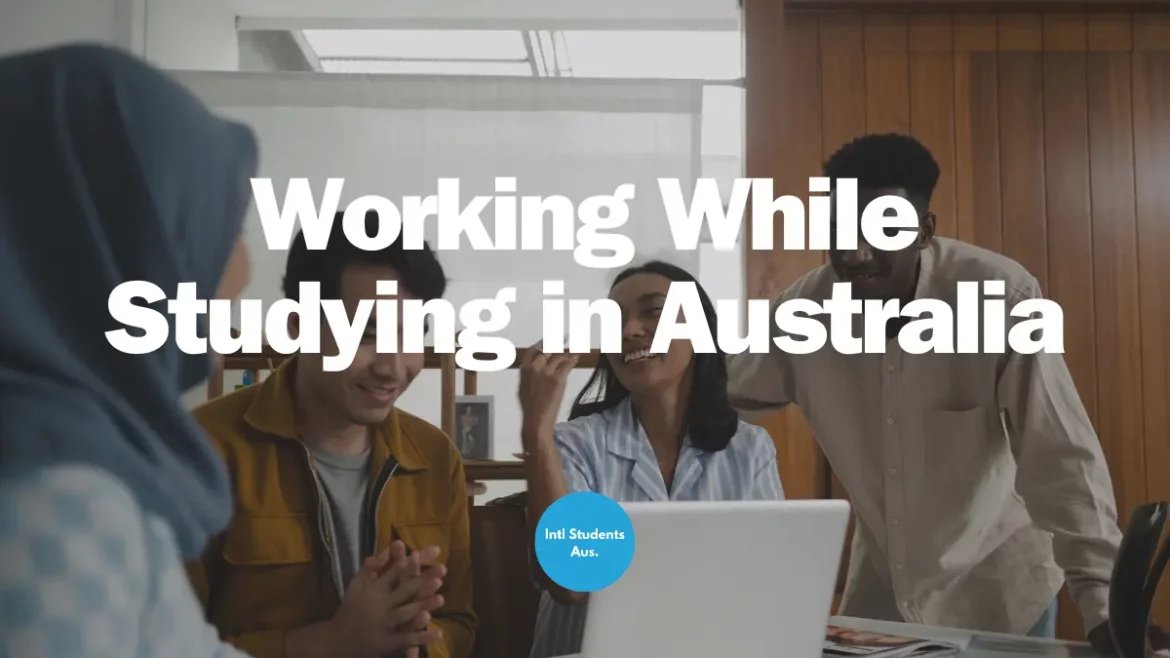Remember that challenges are an inherent part of personal and academic growth. The skills and resilience developed through managing work and study commitments will be valuable assets in your future endeavours.
Working while studying in Australia is useful, but it can be tricky to manage both school and work. This balance is essential because it helps students handle their financial needs while keeping up with their studies. Balancing work and studies is crucial because students often have to pay for tuition and living expenses.
By working part-time, they can support themselves and gain practical experience in their field. This balance also teaches essential skills like managing time and handling different tasks simultaneously. So, finding the right mix of work and studies is not just about money – it’s about growing personally and having a great learning experience in Australia.
In this article, we will dig into the challenges and strategies of managing both working while studying in Australia —a balancing act that many students face.
Understanding Visa Regulations Working While Studying in Australia
When it comes to studying in Australia, there are different types of visas for international students. These visas are designed to accommodate various courses and lengths of study. Students must know the specific visa that suits their educational plans, ensuring compliance with Australian immigration rules.
While studying in Australia, international students need to be aware of the limitations and restrictions on working with their respective visas. Each visa category has specific guidelines regarding the number of hours students are allowed to work during term and vacation. For example, currently, a student on a subclass 500 visa can only work 20 hours per week. Understanding these restrictions helps students balance their work commitments without jeopardizing their visa status.
Working while studying in Australia comes with specific requirements. Students must adhere to the conditions set by their visas, which may include obtaining a Tax File Number (TFN) and maintaining an excellent academic standing. Being familiar with these requirements is essential to ensure a smooth and legal work-study experience in the country.
Part-Time Job Opportunities
Popular Part-Time Job Sectors for Students
When it comes to working while studying in Australia, students often look for part-time jobs to help cover their expenses. Some popular sectors where students find part-time work include:
- Hospitality: Many students take roles in cafes, restaurants, or hotels, gaining valuable customer service skills.
- Retail: Working in shops or supermarkets allows students to earn income while developing communication and sales skills.
- Customer Service: Part-time roles in call centres or customer support provide opportunities for students to enhance their problem-solving abilities.
- Tutoring: Students with expertise in certain subjects may find part-time opportunities to tutor their peers or school students.
Availability of Part-Time Jobs in Different Cities
The availability of part-time jobs varies from city to city in Australia. Larger cities like Sydney, Melbourne, and Brisbane generally offer a wider range of opportunities due to their bustling economies. However, smaller cities and regional areas also have unique job markets, and the demand for certain roles may differ based on the local economy and industry presence.
How to Search for Part-Time Job Opportunities
Finding part-time work while studying in Australia involves a mix of online and offline strategies. Here are some useful tips:
- Online Job Portals: Websites like SEEK, Indeed, and Gumtree list numerous part-time job opportunities. Students can create profiles, upload resumes, and apply for positions relevant to their skills.
- University Career Services: Most universities have dedicated career services that assist students in finding part-time jobs. They often provide job listings, resume workshops, and career counselling.
- Community Notice Boards: Local community notice boards, both physical and online, can be valuable resources for discovering part-time opportunities in the neighbourhood.
- Networking: Connecting with fellow students, professors, and professionals in the chosen field can open doors to part-time job opportunities. Networking events, both on and off-campus, provide platforms to make meaningful connections.
- Job Fairs: Attend job fairs organized by universities or community organizations. These events bring together employers and students, creating a direct avenue for job seekers to explore various opportunities.
- Direct Applications: Students can proactively approach businesses with their resumes, expressing their interest in part-time positions. This initiative can sometimes lead to opportunities that may not be advertised widely.
By exploring these avenues, students can find part-time jobs that not only help them financially but also contribute to their overall learning and skill development while pursuing education in Australia.
Financial Considerations
Working while studying in Australia is often a necessity, given the cost of living in the country. The cost includes accommodation, groceries, transportation, and other daily expenses. Understanding and preparing for the cost of living is crucial for international students. Cities like Sydney and Melbourne generally have higher living costs compared to regional areas. It’s essential to plan finances wisely to sustain oneself during the academic journey.
Average Wages for Part-Time Jobs
When working while studying in Australia, students can earn varying wages depending on the industry and location. Part-time jobs in hospitality, retail, or customer service usually pay hourly rates.
The typical part-time student income in Australia amounts ranges from $23 – $30 per hour. This figure varies significantly based on the type of work that you do.
However, it’s essential to consider the taxation aspect, as part-time earnings are subject to income tax. Being aware of the average wages helps students set realistic financial goals and manage their expenses effectively.
Budgeting Tips for Managing Expenses
Managing finances is a crucial aspect of the “Working While Studying in Australia” experience. Here are some budgeting tips to help students balance their income and expenses:
- Create a Budget: Develop a monthly budget outlining income sources and expected expenses. This includes rent, utilities, groceries, transportation, and discretionary spending.
- Track Spending: Keep a record of daily expenses to identify areas where money is being spent unnecessarily. This helps in making informed decisions about spending habits.
- Prioritize Essentials: Prioritize essential expenses like rent, utilities, and groceries before allocating funds for non-essential items. This ensures that basic needs are met before discretionary spending.
- Cook at Home: Eating out can be expensive. Learning to cook and preparing meals at home can significantly reduce food expenses.
- Explore Student Discounts: Take advantage of student discounts on transportation, entertainment, and other services. Many businesses offer special rates for students.
Tips for Balancing Work and Studies
Balancing work and studies can be challenging, but with effective strategies, it becomes more manageable. Here are some collective tips to help students navigate this delicate equilibrium:
Time Management Strategies
- Create a Schedule: Develop a weekly schedule that outlines both your work and study commitments. This visual aid can help you allocate time efficiently.
- Prioritize Tasks: Identify and prioritize tasks based on deadlines and importance. This ensures that crucial academic and work responsibilities are addressed promptly.
- Set Realistic Goals: Establish achievable short-term and long-term goals for both work and studies. Realistic goals help in maintaining focus and avoiding burnout.
- Use Time Blocks: Allocate specific time blocks for study sessions and work shifts. This disciplined approach helps prevent overworking or neglecting academic responsibilities.
- Flexibility: Be flexibile in your plans. Unexpected events may arise, and being adaptable allows you to navigate changes without compromising your overall goals.
- Regularly Evaluate Goals: Periodically review your goals to ensure they align with your current circumstances. Adjustments may be necessary as your workload or study requirements change.
- Clarify Expectations: Clearly understand the expectations of your employer regarding work hours and responsibilities. Having a transparent dialogue ensures everyone is on the same page.
- Seek Guidance: If you find yourself struggling, seek guidance from both academic advisors and employers. They may offer valuable insights or adjustments to help you maintain a healthy balance.
Case Studies and Success Stories for Australia
International student Preeti shares her journey while studying in Australia, where she turned her childhood dream of studying abroad into reality despite initial obstacles. Supported by her family, Preeti tackled the challenges of adapting to the Australian education system at La Trobe University in Master of Education and Leadership.
Balancing studies with a job at a Laundromat, she overcame language barriers and engaged with the community, demonstrating resilience and an open mindset. Becoming a mentor sparked an interest in social work, and guidance from Amrita Chauhan at IDP Melbourne led her to successfully qualify in Social Work.
Choosing a serene life in regional Australia, Preeti found beauty in the small-town setting. Preeti’s story illustrates the transformative power of education, resilience, and seeking expert advice while working and studying in Australia.
Conclusion
Working while studying in Australia is undoubtedly challenging, but it can be a rewarding experience. The Australian education system, coupled with a diverse and inclusive work environment, provides a unique platform for international students to grow both academically and professionally.


